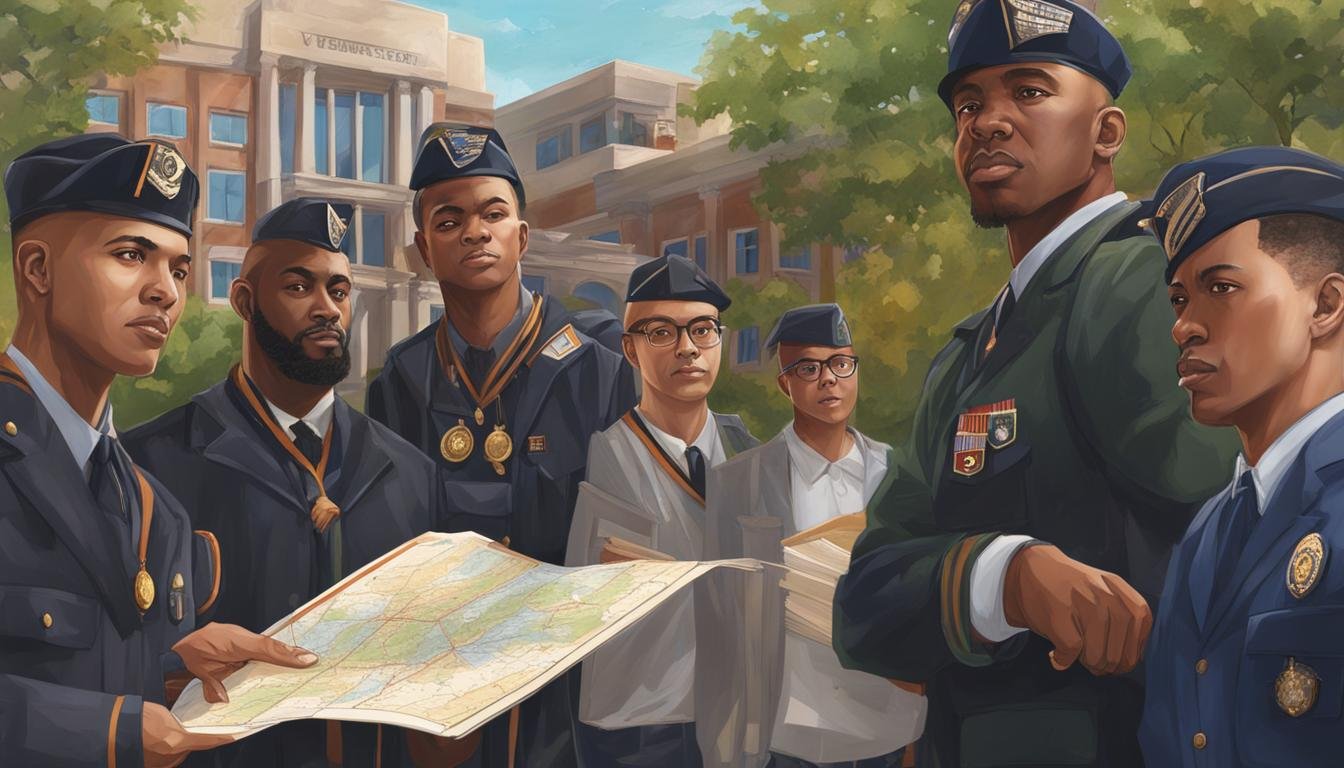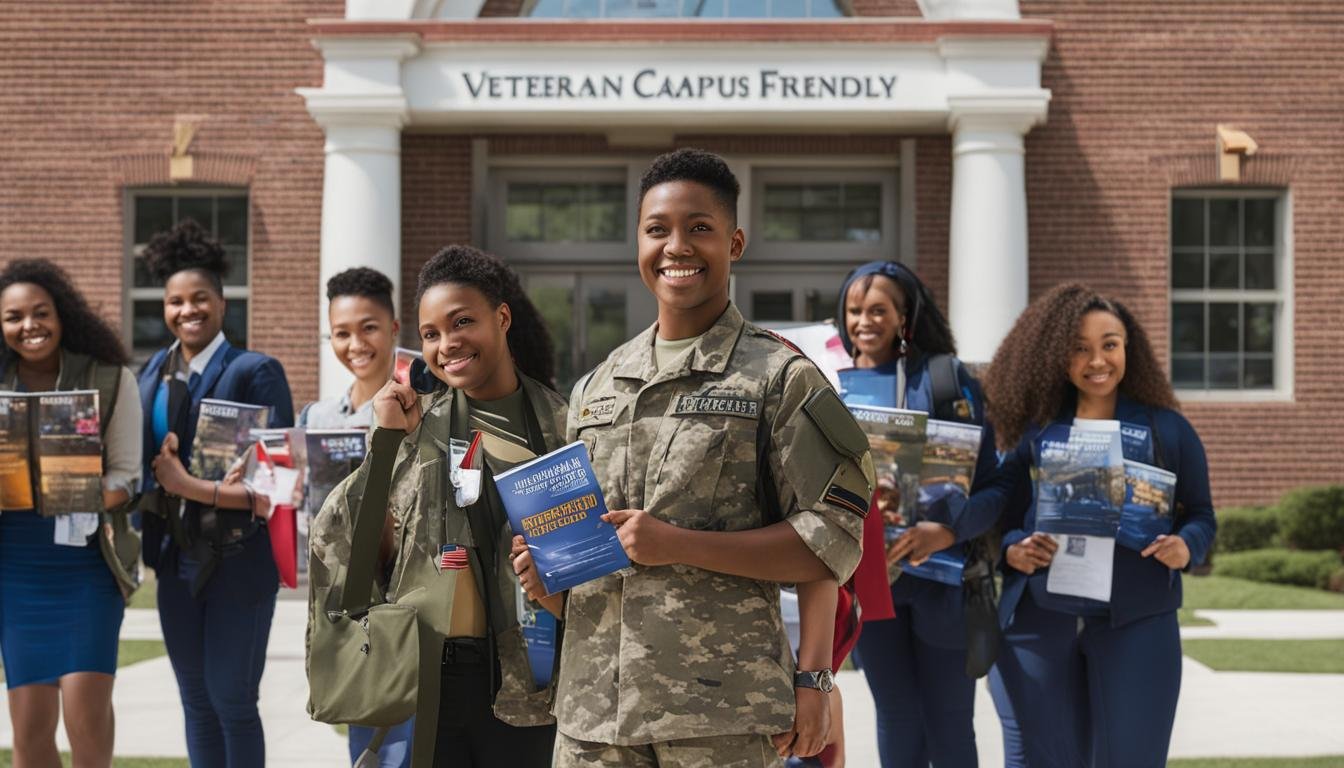Many veterans choose to pursue a college degree after their military service to benefit from higher wages, increased marketability, and greater job satisfaction. However, transitioning to college can be challenging for veterans. They often question their ability to succeed in college and may experience anxiety about the unique challenges they will face.
To help veterans navigate the college admissions process and thrive as students, it is important to take certain steps. Building a support system of friends, family, and colleagues who understand the challenges veterans face can provide guidance and encouragement. Setting clear goals before applying to college ensures that veterans choose a degree program that aligns with their career aspirations. Understanding their military benefits, such as the Post-9/11 GI Bill®, is crucial to maximize funding and education opportunities.
Looking for military-friendly colleges that offer strong support services for veterans, including academic assistance and career resources, can make the transition smoother. Exploring online and distance learning options provides more flexibility, and veterans should be aware of the credits that can transfer from their military experience. Applying for financial aid, including grants and scholarships, can help veterans cover the cost of college and minimize debt.
Key Takeaways:
- Build a support system of friends, family, and colleagues who understand the challenges veterans face.
- Set clear goals before applying to college to ensure alignment with career aspirations.
- Understand and maximize military benefits, such as the Post-9/11 GI Bill®.
- Look for military-friendly colleges with strong support services for veterans.
- Consider online and distance learning options for more flexibility.
Tips for Applying to College After the Military
When transitioning from the military to college, there are several important tips to keep in mind during the application process. Building a support system of friends, family, and colleagues who can provide guidance and hold you accountable to your goals is crucial. Having a strong support system can help you navigate the challenges of college admissions and ensure a smooth transition.
It is also important to set clear goals before applying to college. Take the time to determine what career aspirations you have and choose a degree program that aligns with those goals. This will ensure that you are pursuing a degree that will benefit you in your future career and provide greater job satisfaction.
Understanding your military benefits is also crucial. Take the time to research the benefits available to you, such as the Post-9/11 GI Bill®, and maximize your funding and education opportunities. Utilize resources like the VA to ensure you are aware of all the benefits available to you.
When applying to college, look for military-friendly colleges that offer strong support services for veterans. These colleges often have dedicated staff members who can assist with academic advising, career resources, and other support services tailored to the unique needs of veterans. Additionally, explore online and distance learning options, which can provide more flexibility and accommodate your military obligations.
Finally, applying for financial aid, including grants and scholarships, can help you cover the cost of college and minimize debt. Take advantage of all the financial aid options available to you and submit your applications in a timely manner.
Table: Comparison of Military-Friendly Colleges
| College | Support Services | Online Learning Options | Financial Aid |
|---|---|---|---|
| ABC University | Academic advising, career resources, veteran support groups | Yes | Grants, scholarships, VA benefits |
| XYZ College | Dedicated veterans center, tutoring services, job placement assistance | Yes | Grants, scholarships, VA benefits |
| 123 University | Peer mentoring, counseling services, disability support | Yes | Grants, scholarships, VA benefits |
By following these tips and utilizing the resources available to you, you can navigate the college admissions process after the military and increase your chances of success. Remember to build a support system, set clear goals, understand your benefits, look for military-friendly colleges, explore online learning options, and apply for financial aid. These steps will help you prepare for college and thrive as a student.
How Can Veterans Transitioning to College Select the Best College for Their Needs?
When selecting colleges for veterans, it’s important to consider factors such as campus support services, flexible class schedules, and accessible mental health resources. Look for schools with a strong veterans’ support program and a community that values the unique experiences and perspectives of former military service members.
Tips for Transitioning From the Military to College
Transitioning from the military to college can be a significant adjustment for veterans, but with the right strategies, you can have a successful experience. Researching schools that have experience working with military students and veterans is a crucial first step. Look for colleges that offer specific programs and support services tailored to your needs.
Utilizing veterans affairs (VA) benefits can help cover the cost of tuition and provide financial assistance. Take advantage of transition assistance programs (TAP) offered by the VA, as they provide valuable resources and guidance for veterans entering college. These programs can offer insights into the admissions process and help you navigate the requirements.
Connecting with fellow veterans can also alleviate anxiety and provide support throughout the transition. Many colleges have veteran student organizations or clubs where you can meet others who understand your unique experiences. Building a network of peers can be incredibly beneficial as you navigate this new chapter in your life.
Choosing the right major is essential for your success. Consider your interests, career goals, and the skills you acquired during your military service when selecting a degree program. Seek academic support when needed, such as tutoring or mentorship programs. Additionally, exploring internships in your desired field can provide valuable experience and potentially earn college credit.
Remember to prioritize your physical and mental health. Transitioning to college can be challenging, so it’s essential to take care of yourself. Seek support from campus counseling services if needed and practice self-care to maintain a healthy balance. Be patient with yourself as you navigate this new chapter and remember that seeking higher education as a veteran is a valuable step towards achieving your career goals and personal growth.



